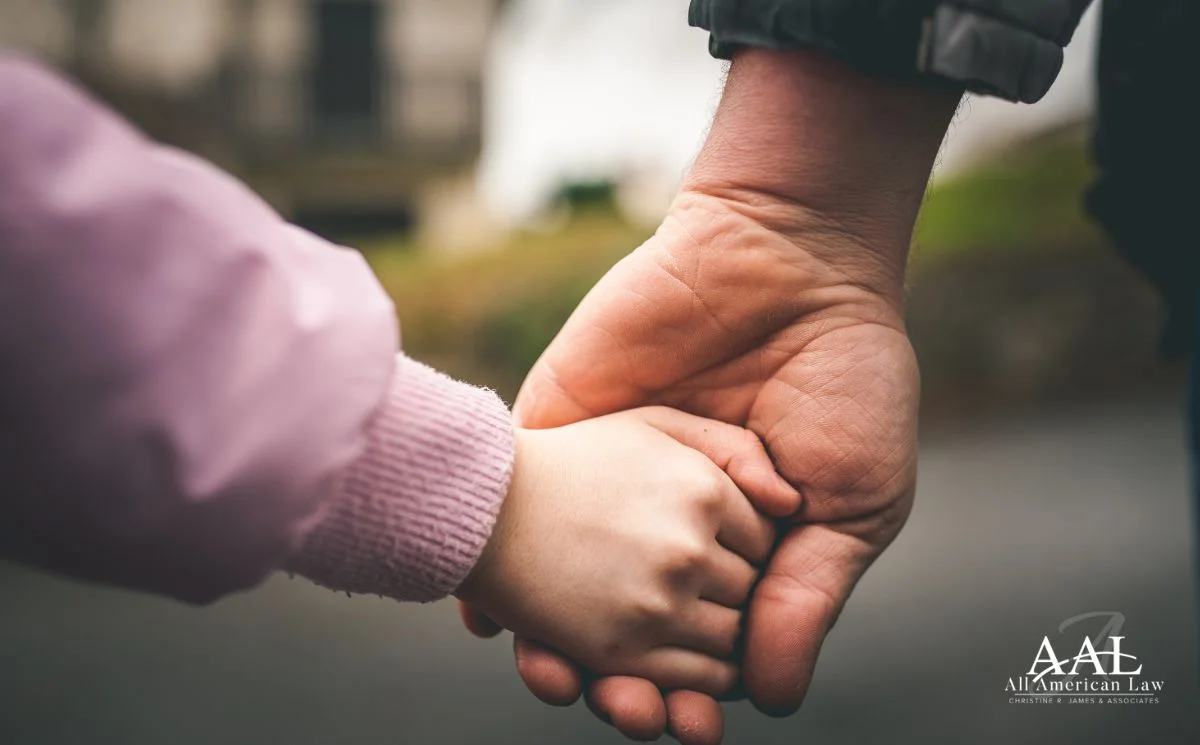10630 Town Center Drive, Suite 102 Rancho Cucamonga, CA 91730
SCHEDULE AN APPOINTMENT
Rancho Cucamonga Adoption Lawyer
Rancho Cucamonga Adoption Attorney

Rancho Cucamonga Adoption Lawyer
Adoption changes the lives of adoptive parents and children alike. Yet, the adoption process in California can be complex and involves a lot of legal and administrative paperwork. If you are looking to adopt, you need a skilled Rancho Cucamonga adoption lawyer on your side. A family lawyer can help you understand California’s adoption laws and inform you on how they can assist you in the adoption process.
Why Choose All American Law?
At All American Law, we know that adoption is a personal and emotionally charged process that can be both hopeful and difficult. We have extensive knowledge about California’s adoption laws and processes. We can support you through every stage of the process and make sure you have all the requirements you need for a seamless adoption process.
Adoption in California
California adoption laws value the child’s best interests and have strict requirements for adoptive parents. A key law is the Adoption and Safe Families Act (ASFA), which requires all adoptive parents to complete background checks and home visits.
According to the ASFA, a potential adoptive parent must pass a criminal background check to show that they do not have a history of offenses that would disqualify them from adoption, such as drug offenses, crimes against children, or sexual abuse charges. The adoptive parent must also prove that their home is a safe environment, including having both emotional and financial stability.
Types of Adoption in California
There are multiple types of adoptions available for families. Knowing the types of adoptions helps families understand which one is most suitable for them. These types include:
- Agency adoptions. These adoptions can be through a private or public agency. Public agencies are typically the route for children who have been displaced, abandoned, or abused and are wards of the state. Private adoptions typically work with the birth parents who want to voluntarily give their children up for adoption.
- Stepparent/Relative Adoptions. Stepparent adoptions make it easy to formalize a parent-child relationship. Likewise, relative adoptions or kinship adoptions usually involve grandparents or other family members acting as guardians. These adoptions are usually simpler, though certain legal proceedings still apply.
- Independent adoptions. Independent adoptions are made independently from agencies. Birth and adoptive parents interact directly or through intermediaries (legal counsel or clergy). These adoptions, however, are often subject to legal scrutiny to ensure they comply with state law.
- Identified adoptions. In this hybrid model, prospective parents seek out a child on their own but adopt the child through an agency. This approach combines the speed of personal adoption with the legal authority of an agency.
- International adoptions. International adoptions involve taking in a child who is outside the United States under federal and international law. These cases typically involve a large amount of documentation, federal approval, and adherence to federal and international laws.
Challenges in the Adoption Process
Even if families conform to the strict standards of the Adoption and Safe Families Act (ASFA), placement is sometimes difficult. Social worker prejudice can contribute to these problems, especially if foster parents are selected over capable relatives like grandparents or other family members. Unfortunately, sometimes, social workers may choose their familiarity with existing foster parents over the legal and emotional attachments relatives have to the child.
Family Reunification (FR) timetables are essential for relatives in need of placement. These periods determine the court’s timetable for trying to reunite children with their birth parents or place them with adoptive families. Being proactive and getting proper court orders helps to overcome any biases and ensure placement.
Foster parents who wish to adopt can support themselves by keeping an exacting log of concerns for the child’s welfare, particularly related to interactions with relatives or other caregivers. Developing a close, child-centered connection with the child’s attorney and social worker is also important. Showing them how loving and safe you are helps demonstrate that your house is the appropriate option for the child’s welfare.
Why You Need a Lawyer
Adoption law isn’t straightforward, and every kind of adoption is different in terms of the legal processes. A skilled adoption attorney in Rancho Cucamonga can be invaluable in analyzing your case to determine if you meet ASFA qualifications and other laws, defending your placement rights in court, and challenging any social worker prejudice.
They can take care of all the legalities, including court paperwork and California adoption requirements, so you can spend your time growing your family.
FAQs
Q: What Is the Average Cost of Adoption in California?
A: The cost of adoption in California varies considerably from one type of adoption to the next. Agency adoptions usually charge home study fees, legal fees, and placement fees. While independent adoptions can cost legal and intermediary fees, stepparent and relative adoptions are generally less expensive. Financial aid or grants can offset adoption expenses for those adopting through the public sector or foster care.
Q: What Disqualifies You From Adopting in California?
A: Anyone could be disqualified from adopting in California if their background check shows a history of child abuse, sexual crimes, violent crimes, or drug-related crimes. A history of domestic violence or continued criminal activities can also deter adoption. Safety and stability in the household are big considerations, and anything that would put a child’s safety at risk could lead to disqualification.
Q: How Hard Is It to Adopt a Child in California?
A: Adoption in California can be challenging because of the legal, procedural, and emotional requirements. Prospective parents must pass rigorous screenings, undergo home visits, and be prepared for delays due to court requirements and placement preferences. With the right preparation, legal support, and effort, it could lead to the satisfying experience of starting a family.
Q: Does California Pay Adoptive Parents?
A: California offers financial assistance to adoptive parents of eligible children, particularly foster children. This support can include monthly adoption payments to help cover a child’s medical care, education, and living costs. The amount depends on the child’s age, needs, and circumstances. Financial assistance is crucial for families who wish to provide a secure, loving home.
Contact All American Law Today
If you are ready to begin your adoption process, All American Law can help you. We can help you navigate this process so you can settle with your family. Contact us today to get started.



